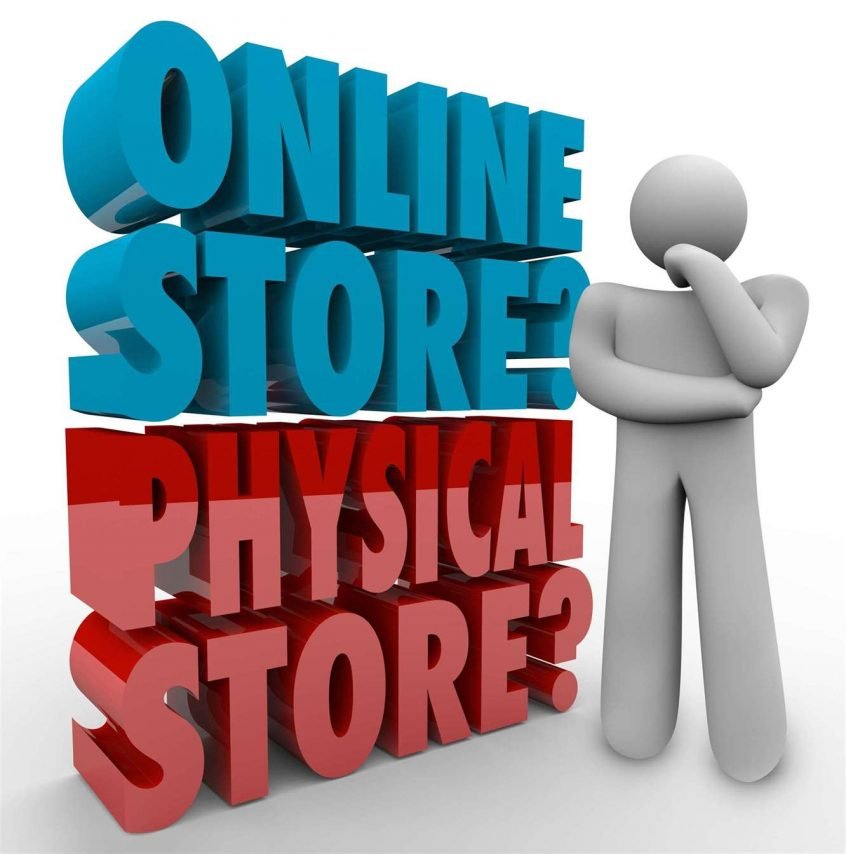The ubiquity of internet access in North America has changed everything, from our modes of communication to the way we shop. In the United States, Amazon has become one of the top retailers for everything from televisions to groceries; it has the variety of the department stores of old, with none of the challenges of keeping a large store well staffed and navigable. It may seem to some like the future of shopping is entirely online, but brick-and-mortar stores still cover the landscape, resilient to the change. When should a startup opt to go online only, and when is brick and mortar a good idea?
The main advantage to brick-and-mortar is tactility; try before you buy is still an incredibly important phenomenon. Apple, who quite recently became the world’s first trillion dollar company, operates largely in a retail environment, with Apple stores consistently topping the list of most profitable retailer per square foot. They rely on the senses in their retail marketing; almost everything they sell is on display, so you can interact with their products. They also have knowledgeable staff on hand to explain how the technology works, and help people decide on what tech is right for them. Altogether, this makes for a pleasant shopping experience that can give more information than an online counterpart ever could. There’s also the impulse buy; when we’re shopping online, we shop for what we’re looking for, while shopping in stores leads us to buying what we didn’t even know we wanted.
Retailing online has its advantages, too, and they lie mainly in cost and convenience. While folks might want to try before they buy, more often than not they look at reviews before completing their purchase. With the plethora of information available online, it’s almost foolish not to do research before you decide on what you’re buying. An online store allows customers to read product descriptions and reviews, then purchase the item at the click of a button. Online shopping also makes it easy to display and sell your products or services anywhere in the world; you aren’t bound to the physical limits of a brick and mortar store. Costs for an online retailer are also much lower than for a physical space; selling online means the overhead is the costs for maintaining your website and server space, as well as any warehouses you have for your items, rather than for a series of retail spaces.
So, as a small business, should you go brick-and-mortar or online? The answer lies in your target audience and your budget. If you are selling goods that you know will mainly be of interest to locals, or you feel like the best way to sell your product is through tactile experience, a retail store can be a good investment. For things you expect to ship a long ways, or for a more budget-friendly starting point, go online. Realistically, if you have the option to, you’ll want to do both; customers will find your products online then go to the nearest retailer to purchase them. In order to observe these trends and position yourself better in the marketplace, it can be a good idea to talk to accountants from Compass Accounting; they’ll know what tax breaks are available for sellers in both physical and digital spaces.

